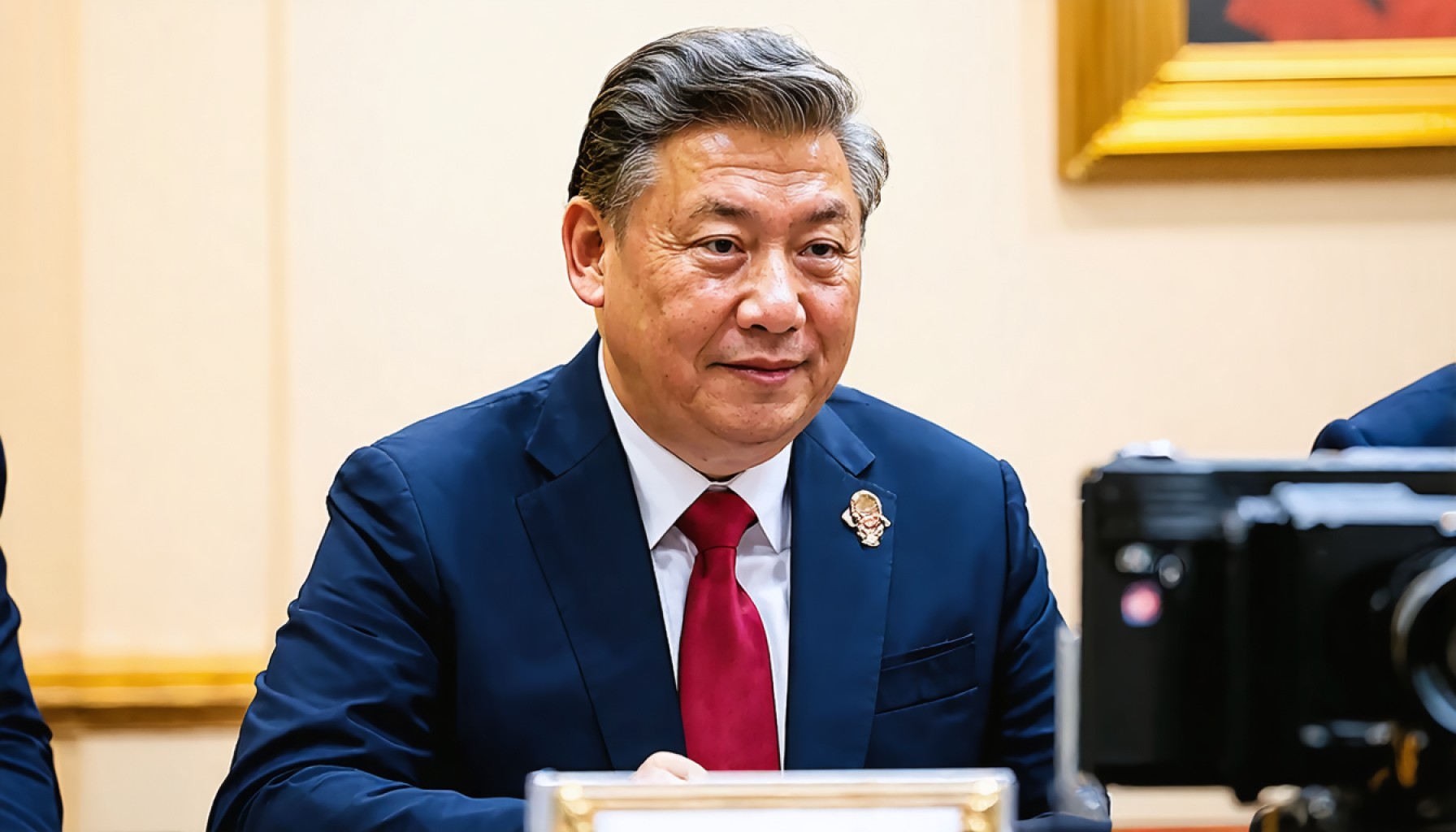- Jiang Chaoliang, a high-profile Chinese political figure, is under investigation for severe misconduct.
- The investigation is part of China’s broader anti-corruption campaign targeting political elites.
- Jiang, a former governor of Jilin and Party Secretary of Hubei, stood as a prominent force in Chinese politics.
- His downfall highlights the Chinese government’s commitment to eradicating corruption within its ranks.
- The case raises broader questions about integrity and accountability in the corridors of power in Beijing.
- This situation exemplifies that even the most powerful individuals are not immune to scrutiny.
On a seemingly ordinary day in February, the quiet corridors of power in China echoed with whispers of scandal. A prominent figure, Jiang Chaoliang, finds himself ensnared in the web of a significant investigation. Once a towering figure in Chinese politics, Jiang is now under the scrutiny of disciplinary and anti-corruption authorities, facing accusations of severe misconduct.
Born in the late summer of 1957, Jiang carved his path to leadership through roles of increasing responsibility, from the bustling streets of Jilin where he once served as governor, to the influential halls of Hubei as Party Secretary. With each step, he became a more entrenched force in China’s complex political landscape. However, this ascent appears to have reached a precarious peak.
The investigation, a part of a broader anti-corruption campaign that has gripped the nation, raises questions about the corridors of power in Beijing and beyond. What exactly has led to this dramatic fall from grace? Jiang’s history suggests a man deeply woven into the fabric of China’s political system, making the allegations against him all the more extraordinary.
This case underscores the Chinese government’s relentless pursuit to rid its ranks of corruption, sending ripples through both the public and political echelons. As the story unfolds, one can only watch and wonder what lies beneath the surface of this profound upheaval.
In a world where power often shields from scrutiny, this investigation serves as a stark reminder: even the mightiest can tumble, and with them, questions of integrity and accountability come crashing into the light.
Unveiling the Underbelly of Power: Jiang Chaoliang’s Scandal & Its Implications
How-To Steps & Life Hacks for Decoding Political Scandals
1. Research the Individual: Start by understanding the career and legacy of the involved figure. For Jiang Chaoliang, this involves reviewing his roles in Jilin and Hubei.
2. Understand the Context: Investigate the broader political maneuvers at play, such as China’s ongoing anti-corruption campaign spearheaded by the Communist Party.
3. Identify Key Players: Look into the entities and individuals who have the influence to instigate such investigations.
4. Follow the Money: Many political scandals involve financial improprieties. Check news reports, financial disclosures, and watchdog findings for a financial trail.
5. Consult Multiple Sources: Gather information from local and international media, think-tanks, and expert analyses to form a well-rounded understanding.
Real-World Use Cases of Anti-Corruption Campaigns
China’s extensive anti-corruption efforts have led to the downfall of many high-ranking officials, similar to Jiang Chaoliang’s case. These initiatives aim to restore public trust and maintain the Communist Party’s dominance. Case studies, such as the dethroning of Bo Xilai, serve to illustrate the campaign’s reach.
Market Forecasts & Industry Trends
The consequences of high-profile investigations can ripple through economic sectors. Studies suggest increased foreign investment may follow political stability resulting from anti-corruption efforts. However, there could also be short-term volatility in markets given the intra-party tensions such probes often evoke.
Reviews & Comparisons: China vs. Global Anti-Corruption Efforts
– China: A centralized approach focusing on internal party discipline.
– Global Trends: Countries like Brazil and South Africa have seen similar drives with varied public reception and effectiveness.
Controversies & Limitations
While the Chinese government’s actions against corruption appear rigorous, critics argue that such probes can serve political ends, eliminating threats to the current leadership. The opaque nature of political proceedings often limits transparency and public discourse.
Features, Specs & Pricing: The Political Machine
Understanding the structure and hierarchy of the Chinese Communist Party provides insights into Jiang’s rise and fall. Leadership roles, from provincial governors to party secretaries, offer significant influence and control over resources, which can be both empowering and perilous.
Security & Sustainability of Anti-Corruption Campaigns
Security refers to both the protection of integrity within the party and control over public information. Sustainable anti-corruption efforts must balance punitive measures with preventative strategies to nurture a culture of accountability.
Insights & Predictions
Jiang Chaoliang’s case might indicate a trend towards stricter enforcement of party discipline, potentially resulting in more public figures being investigated. This could influence foreign policy and economic partnerships as China positions itself as a model of governance.
Tutorials & Compatibility with Global Norms
How does China’s approach align with international standards like those set by Transparency International? It points to a hybrid model, combining stringent local laws with international anti-corruption frameworks.
Pros & Cons Overview
Pros:
– Reinforces internal party discipline.
– May deter corruption and improve public trust.
Cons:
– Can be used for political maneuvering.
– Lacks transparency, reducing public oversight.
Actionable Recommendations
1. Monitor Developments: Stay informed with platforms like Reuters or BBC for unbiased coverage.
2. Engage in Discussions: Participate in forums or academic discussions to better understand these political shifts.
3. Analyze Impact: Consider how these events might affect global markets and your investments.
For regular updates and further reading on political dynamics and scandals, refer to trustworthy media outlets.
